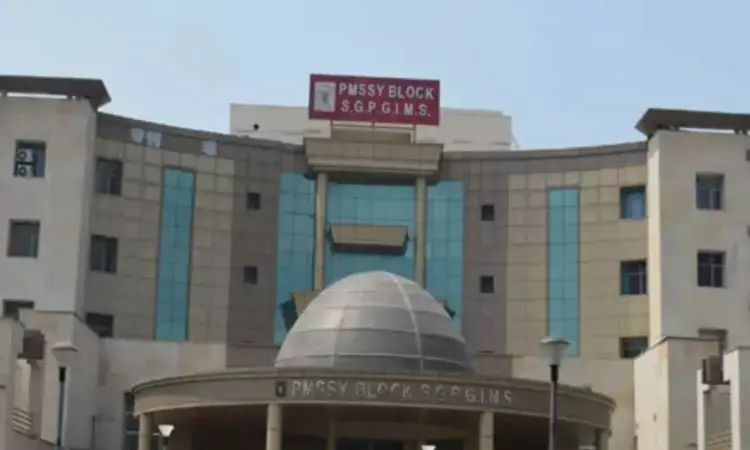- Home
- Medical news & Guidelines
- Anesthesiology
- Cardiology and CTVS
- Critical Care
- Dentistry
- Dermatology
- Diabetes and Endocrinology
- ENT
- Gastroenterology
- Medicine
- Nephrology
- Neurology
- Obstretics-Gynaecology
- Oncology
- Ophthalmology
- Orthopaedics
- Pediatrics-Neonatology
- Psychiatry
- Pulmonology
- Radiology
- Surgery
- Urology
- Laboratory Medicine
- Diet
- Nursing
- Paramedical
- Physiotherapy
- Health news
- Fact Check
- Bone Health Fact Check
- Brain Health Fact Check
- Cancer Related Fact Check
- Child Care Fact Check
- Dental and oral health fact check
- Diabetes and metabolic health fact check
- Diet and Nutrition Fact Check
- Eye and ENT Care Fact Check
- Fitness fact check
- Gut health fact check
- Heart health fact check
- Kidney health fact check
- Medical education fact check
- Men's health fact check
- Respiratory fact check
- Skin and hair care fact check
- Vaccine and Immunization fact check
- Women's health fact check
- AYUSH
- State News
- Andaman and Nicobar Islands
- Andhra Pradesh
- Arunachal Pradesh
- Assam
- Bihar
- Chandigarh
- Chattisgarh
- Dadra and Nagar Haveli
- Daman and Diu
- Delhi
- Goa
- Gujarat
- Haryana
- Himachal Pradesh
- Jammu & Kashmir
- Jharkhand
- Karnataka
- Kerala
- Ladakh
- Lakshadweep
- Madhya Pradesh
- Maharashtra
- Manipur
- Meghalaya
- Mizoram
- Nagaland
- Odisha
- Puducherry
- Punjab
- Rajasthan
- Sikkim
- Tamil Nadu
- Telangana
- Tripura
- Uttar Pradesh
- Uttrakhand
- West Bengal
- Medical Education
- Industry
SGPGI Lucknow conducts robotic assisted complex surgery for tracheoesophageal fistula

SGPGIMS
Lucknow: A medical robot at the Sanjay Gandhi Postgraduate Institute of Medical Sciences (SGPGIMS) has performed a complex surgery for a condition called 'tracheoesophageal fistula', an abnormal connection between one's oesophagus (food pipe) and trachea (wind pipe) through a tubular passage.
Recognised as a congenital deformity in medical literature, the condition is seen in one out of one lakh new-born babies.
In this disease, food or water consumed leaks from the food pipe and sneaks into sterile windpipe. As a result, either the patient falls sick with frequent pneumonia or gets choked.
Be it babies or adults, the only way to manage the condition is to conduct a repair procedure called open thoracotomy in which surgeons repair the hole to restore normalcy of function.
In the conventional method, gastro-surgeons approached the problem area through a long, multi-layer surgery which had its set of risks like large incision, loss of blood, secondary infection, and longer hospital stays.
The cost of relief was significantly high.
With the arrival of medical robot at SGPGIMS, the risks with the procedure have been brought down significantly while the recovery has been fast-tracked.
However, the disease is rarer among elders like Zoya (the patient in this case) and may be caused by any injury, including the one sustained during a medical procedure, cancers and tuberculosis.
Professor Rajneesh Kumar Singh, whose team, including Dr Raghavendra and Dr Palash, uses the medical robot on a wide range of gastro-oesophageal conditions, said, "Zoya's story is a case in point. The precision, ease of operation and quick recovery help both the patient and doctors. Operating with conventional method was as strenuous as a five-kilometre-long brisk walk while now it is like a casual stroll over the grass. There is no residual fatigue as the stressors have been eliminated."
Zoya's father, Shaukat Javed, said, "We were told it will be a major surgery but it did not seem like that. Zoya was walking in the ward the next day. She was retained only to monitor healing of sutures. We could go back home on the fifth day."
Kajal Rajput joined Medical Dialogues as an Correspondent for the Latest Health News Section in 2019. She holds a Bachelor's degree in Arts from University of Delhi. She manly covers all the updates in health news, hospitals, doctors news, government policies and Health Ministry. She can be contacted at editorial@medicaldialogues.in Contact no. 011-43720751


